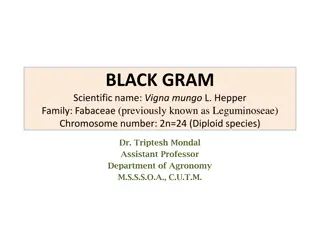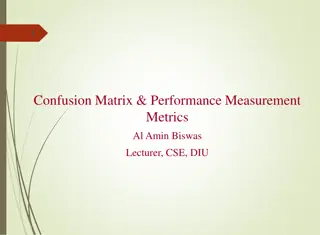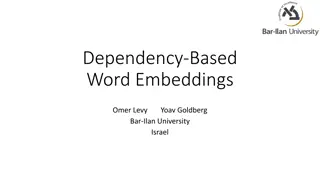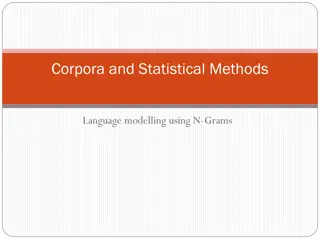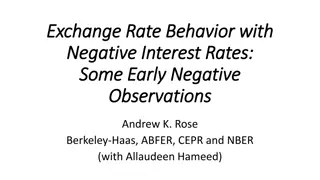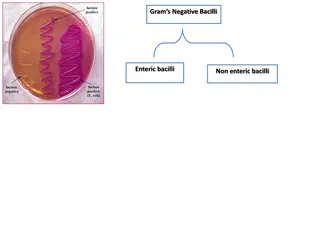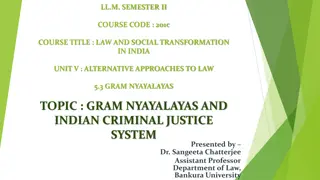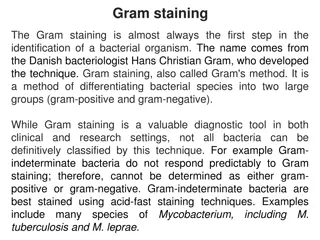Buy Atomic Platinum 10-GRAM Bag Online - mysteriousplant.com
Buy Atomic Platinum 10-GRAM Bag OnlineAtomic Platinum 10-GRAM Bag is highly potent, with such a wonder aroma. Do you think you can handle it? Our products are 100 % legal and are medical.\nEmail: sales@mysteriousplant.com\n
11 views • 2 slides
Understanding Antibiotic Therapy in the ICU: Strategies and Considerations
Delve into the world of antibiotic therapy in the intensive care unit (ICU) with a focus on identifying the enemy pathogens, selecting the appropriate antibiotics, and formulating effective treatment plans. Explore the nuances of Gram-positive and Gram-negative bacteria, along with other key bacteri
4 views • 76 slides
Anaerobic Bacterial Infections: Overview and Clinical Implications
Anaerobic bacterial infections are caused by bacteria that do not require oxygen for growth, posing challenges in diagnosis and treatment. This article delves into the types of anaerobic bacteria, their role in human infections, and common clinical presentations such as abscess formation. Gram-negat
2 views • 24 slides
Earth-GRAM Overview and Update Status
Earth-GRAM is undergoing significant upgrades including updates to the Global Reference Atmospheric Model suite. The upgrade team aims to modernize code, incorporate state-of-the-art data sources, enhance user support, and address limitations. The team comprises experts from NASA Langley Research Ce
0 views • 22 slides
Earth-GRAM Overview and Updates 2023
Earth-GRAM is a global reference atmospheric model providing monthly mean and standard deviation data for various atmospheric variables. It is used in engineering for dispersion simulations but is not a forecasting model. Updates to Earth-GRAM include the Modern Era Retrospective Analysis, a global
0 views • 19 slides
Understanding the Gram Stain Technique in Medical Microbiology Lab
The Gram stain is a crucial technique in bacteriology, dividing bacteria into Gram-positive and Gram-negative groups based on cell wall characteristics. This method involves using crystal violet, iodine, ethanol, and safranin to differentiate between the two types of bacteria. Gram-positive bacteria
0 views • 11 slides
Overview of Clostridial Diseases Caused by Clostridium Bacteria
Clostridial diseases are caused by bacteria of the genus Clostridium, which are anaerobes commonly found in soil, feces, and healthy animal tissues. These bacteria can lead to various diseases in animals such as black quarter, gas gangrene, necrotic dermatitis, and more. Understanding the different
0 views • 55 slides
Understanding Anaerobic Infections: A Case Study in Clinical Microbiology
In this case study, two patients present with fever, neck pain, and previous misdiagnoses of viral pharyngitis. Blood cultures reveal anaerobic growth, with Gram stain showing pleomorphic Gram-negative rods. Anaerobic cultures require specialized conditions for growth, such as anaerobic glove box in
1 views • 14 slides
Overview of Bacterial Morphology and Cell Structure
This article discusses the morphology of both Gram-positive and Gram-negative bacteria, highlighting examples of different arrangements and shapes. It also explores the structure and functions of bacterial cell walls, emphasizing the role of teichoic acids in Gram-positive cell walls. Additionally,
1 views • 38 slides
Understanding Anaerobic Bacterial Growth and Culturing Methods
Anaerobic bacteria have specific sensitivities to oxygen, with categories such as aerobic, obligate anaerobes, facultative anaerobes, aerotolerant anaerobes, microaerophiles, and capnophilic bacteria. Methods like Anaerobic Jar and GasPak system are used for cultivating anaerobic bacteria, ensuring
0 views • 7 slides
Overview of Black Gram (Vigna mungo L.) and Its Economic Importance
Black gram, scientifically known as Vigna mungo L., is a significant pulse crop with various economic uses. It is consumed as dal, used in traditional dishes, and serves as livestock feed. The seeds are rich in protein, vitamins, and minerals, making them a valuable food source. Originating in India
0 views • 22 slides
Understanding the Normal Microbial Flora of the Human Body
The normal microbial flora, also known as the indigenous microbiota, inhabit various areas of the human body such as the gastrointestinal tract, respiratory tract, genitourinary tract, and skin. They play a crucial role in maintaining health and can re-establish themselves when disturbed. While resi
0 views • 22 slides
Overview of Green Gram (Vigna radiata L.): Economic Importance, Origin, and Classification
Green gram, scientifically known as Vigna radiata L., is a highly digestible pulse crop with various uses such as consumption as whole grains or dal, making flour for cakes, and as fodder for cattle. It is grown widely in Southern Asia and other countries, with India being a significant producer. Gr
0 views • 23 slides
Infectious Diseases 4/5th Semester Classes: Approach & Prevention
Infectious Diseases class focuses on various topics including Antibiotic Stewardship Practices, Community-Acquired Infections, Gram-Positive and Gram-Negative Bacteria, Spirochetal Diseases, Diseases Caused by Bacterial and Viral Infections, HIV/AIDS, Fungal and Parasitic Infections. The class also
3 views • 30 slides
Understanding Bacterial Cell Structure and Function
Bacteria display unique cellular structures and functions that differ from eukaryotic cells. They have a simple structure with a plasma membrane but lack complex internal membrane systems. The cytoplasm contains inclusion bodies, ribosomes, and genetic material in the nucleoid. Bacteria can be categ
4 views • 21 slides
Understanding Confusion Matrix and Performance Measurement Metrics
Explore the concept of confusion matrix, a crucial tool in evaluating the performance of classifiers. Learn about True Positive, False Negative, False Positive, and True Negative classifications. Dive into performance evaluation metrics like Accuracy, True Positive Rate, False Positive Rate, False N
3 views • 13 slides
Understanding Bacterial Taxonomy and Staining Techniques
Bacterial taxonomy involves classifying and identifying bacteria, while staining techniques such as Gram staining help differentiate between Gram-positive and Gram-negative bacteria. This article discusses the importance of distinguishing bacterial strains, preparing smears, and performing different
0 views • 17 slides
Advancements in Word Embeddings through Dependency-Based Techniques
Explore the evolution of word embeddings with a focus on dependency-based methods, showcasing innovations like Skip-Gram with Negative Sampling. Learn about Generalizing Skip-Gram and the shift towards analyzing linguistically rich embeddings using various contexts such as bag-of-words and syntactic
0 views • 39 slides
Understanding N-Gram Models in Language Modelling
N-gram models play a crucial role in language modelling by predicting the next word in a sequence based on the probability of previous words. This technology is used in various applications such as word prediction, speech recognition, and spelling correction. By analyzing history and probabilities,
0 views • 101 slides
Understanding Exchange Rate Behavior with Negative Interest Rates: Early Observations by Andrew K. Rose
In this study, Andrew K. Rose examines the exchange rate behavior in economies with negative nominal interest rates, focusing on the impact and implications of such rates on exchange rates. The findings suggest limited observable consequences on exchange rate behavior, with similarities in shocks dr
0 views • 42 slides
Overview of Gram-Negative Enteric Bacilli
Gram-negative bacilli are a diverse group of bacteria, including enteric and non-enteric bacilli. Common characteristics include being aerobic or facultative anaerobes, fermenting glucose, and being part of the normal flora of the human and animal gastrointestinal tract. Escherichia coli (E. coli) i
0 views • 27 slides
Overview of Enterobacteriaceae Family and Their Antigenic Structure
The Enterobacteriaceae family comprises a diverse group of gram-negative rods commonly found in the gut of humans and animals, known for causing various diseases. Key members include Escherichia coli, Shigella, Salmonella, Klebsiella, and more. They are facultative anaerobes, ferment glucose, lack c
0 views • 48 slides
Understanding the Rise of Gram-Negative Bloodstream Infections in Healthcare
Gram-negative bloodstream infections (GNBSI) are becoming more prevalent in healthcare settings, posing a significant challenge due to increasing antimicrobial resistance. The prevalence of GNBSI is on the rise, causing concern for healthcare professionals globally. Strategies to combat GNBSI must b
0 views • 46 slides
Understanding Microbial Ecology in the Oral Cavity
The oral cavity is a unique ecological system that plays host to a diverse resident microflora, consisting of various bacterial species, yeasts, and other microorganisms. This dynamic microbial community interacts with the human body, contributing to its normal development and defense systems. The c
0 views • 36 slides
Guide to Giving Negative Commands in Spanish
Learn how to effectively communicate what not to do in Spanish with negative commands. Understand the different forms of negative commands for -AR, -ER/-IR verbs, irregular verbs, direct object pronouns, stem-changing verbs, and verb forms ending in -CAR, -GAR, -ZAR. Master the rules and exceptions
0 views • 12 slides
Understanding Negative -T Commands in Spanish
Negative -T commands in Spanish are used to tell someone what not to do. These commands are often directed at friends or familiar individuals. Forming negative -T commands involves starting with the YO form in the present tense, dropping the O for -ER/-IR verbs, adding -ES for -AR verbs, and includi
0 views • 50 slides
Exploring Negative Numbers in Year 5 Mathematics Lesson
In this Year 5 mathematics lesson on negative numbers, students learn to recognize and use negative numbers through various activities such as placing them on a number line, counting back through zero, and calculating the differences between positive and negative numbers. The lesson also prompts stu
0 views • 23 slides
Understanding Infectious Diseases: Approach, Prevention, and Viral Agents
Infectious diseases play a significant role in public health, with a focus on antibiotic stewardship, community-acquired and healthcare-associated infections, as well as various bacterial, viral, fungal, and parasitic agents. Specific topics include the prevention of infectious diseases, with a deta
0 views • 18 slides
Exploring the Possibility of People with Negative Height
This article delves into the theoretical concept of people with negative height, discussing the probabilities based on normal distribution models and empirical rules. It explores the likelihood of encountering individuals with negative height in today's population, throughout history, and the number
0 views • 10 slides
Non-Negative Tensor Factorization with RESCAL
This article discusses non-negative tensor factorization with RESCAL, covering topics such as Non-Negative Matrix Factorization, Multiplicative Updates, RESCAL for Relational Learning, and Non-Negative Constraint for RESCAL. It explores how factorizing matrices/tensors into non-negative factors can
0 views • 11 slides
Gram Nyayalayas: Enhancing Justice at the Grassroots Level in India
Indian Criminal Justice System has evolved over the years to ensure justice reaches every individual efficiently. The introduction of Gram Nyayalayas represents a significant step towards this goal by establishing formal mobile courts in villages. These courts aim to enhance access to justice and pr
0 views • 16 slides
Impact of Negative Nominal Interest Rates on Bank Performance
Negative nominal interest rates, implemented following the financial crisis, have had a limited effect on bank performance globally. While low rates reduce profitability, banks have shown resilience through adjustments in funding allocations and non-interest income sources. Studies suggest that resp
0 views • 34 slides
School Food Service Update and Financial Overview
Within the School Food Service update, information is provided on negative account balances, personal parent notifications, and payment options available to parents. The data includes details on total negative balances, number of families contacted, and payment methods. Challenges with negative bala
0 views • 5 slides
Understanding Gram Staining in Bacterial Identification
Gram staining is a crucial technique in identifying bacterial organisms, developed by Hans Christian Gram. It involves differentiating bacteria into gram-positive and gram-negative groups based on cell wall properties. Gram staining has five basic steps and helps in determining bacterial characteris
0 views • 15 slides
Managing MDR Gram-negative Enterobacteriaceae Outbreaks in Hospitals: Response Strategies and Best Practices
Hospitals face a growing threat from multidrug-resistant Gram-negative bacteria, such as Acinetobacter baumannii and Klebsiella pneumoniae. This article discusses the emergence of carbapenem-resistant Enterobacteriaceae in Europe and outlines response strategies, including lab screening, communicati
0 views • 23 slides
Rising to the Challenge of Multidrug-Resistant Gram-Negative Bacteria
The presentation discusses the alarming rise of multidrug-resistant Gram-negative bacteria, highlighting the threat they pose to public health and the economy. Notable figures like Dr. Tom Frieden and Dame Sally Davies emphasize the urgency of taking action to prevent a potential return to a pre-ant
0 views • 58 slides
Bacterial Conjugation: Mechanism and Applications
Bacterial conjugation is the process of transferring genetic material between bacterial cells through direct contact or bridge-like connections. Discovered in 1946, this mechanism enables the transfer of DNA regions between various bacterial species, including Gram-negative and Gram-positive bacteri
0 views • 58 slides
Understanding the Gram Stain Technique in Bacteriology
The Gram stain technique is a vital tool in bacteriology, dividing bacteria into Gram-positive and Gram-negative groups based on cell wall composition. This differential staining method involves primary staining with crystal violet, followed by a mordant treatment, decolorization, and counterstainin
0 views • 9 slides
Overview of Neisseria Species: Characteristics, Pathogenicity, and Laboratory Diagnosis
Neisseria species are Gram-negative diplococci known for pathogens like N. gonorrhoeae causing gonorrhea and N. meningitidis causing meningitis. They are aerobic to facultatively anaerobic, oxidase-positive, non-motile, and encapsulated cocci. N. gonorrhoeae is fastidious, requiring increased CO2 te
0 views • 20 slides
Bellman-Ford Algorithm: Shortest Path with Negative Edge Length
The Bellman-Ford algorithm addresses the challenge of finding the shortest path in graphs with negative edge lengths, particularly useful in scenarios such as arbitrage in currency exchange rates. By utilizing dynamic programming and steps iteration, the algorithm efficiently detects negative cycles
2 views • 16 slides










